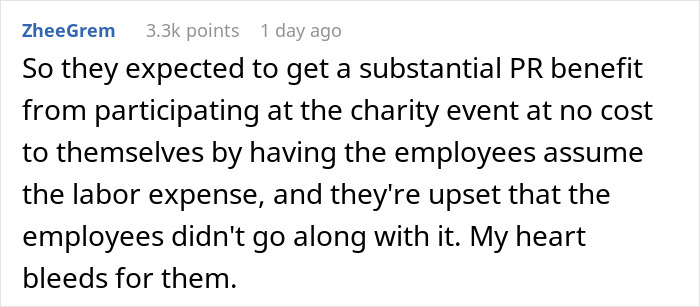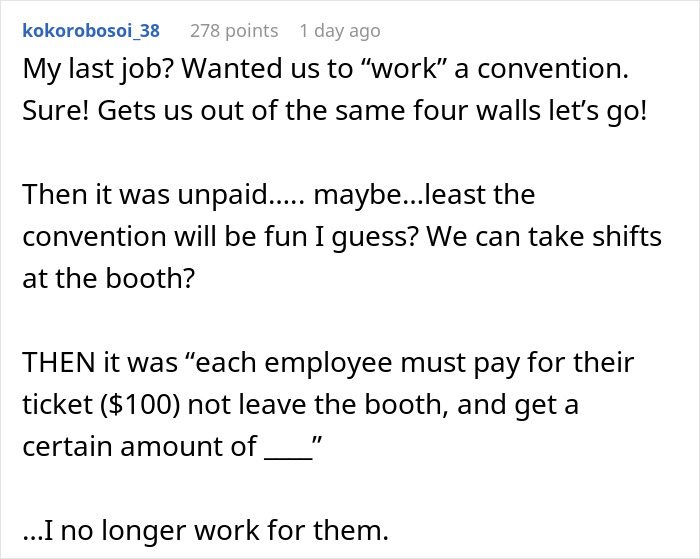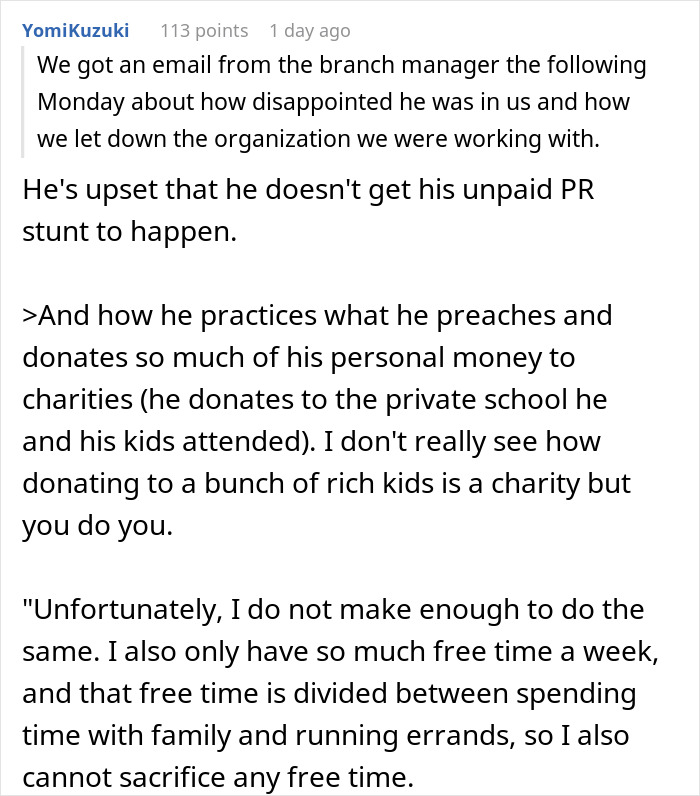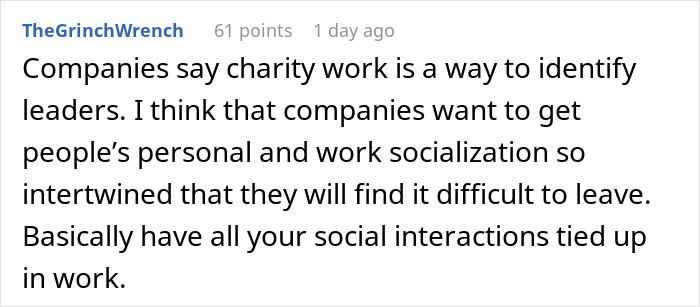Like volunteering, charity work is something that many people do out of the kindness of their hearts, expecting nothing in return. But sometimes, such work is reimbursed, which might be an added motivating factor for many; especially when they are asked to do it, rather than choosing when and where to do it themselves.
This redditor’s company asked its employees to do paid charity work, which they seemed happy to comply with – in addition to helping the community, they would get to spend time outdoors and enjoy a nice lunch that wasn’t pizza. However, people’s mood changed fairly quickly, as the company made some significant changes in their plan. Scroll down to find the full story below.
It’s not uncommon for companies to help local communities by doing charity work

Image credits: DC Studio/Envato (not the actual photo)
This company changed its stance on paying for employees’ charity work, so the employees changed theirs on attending



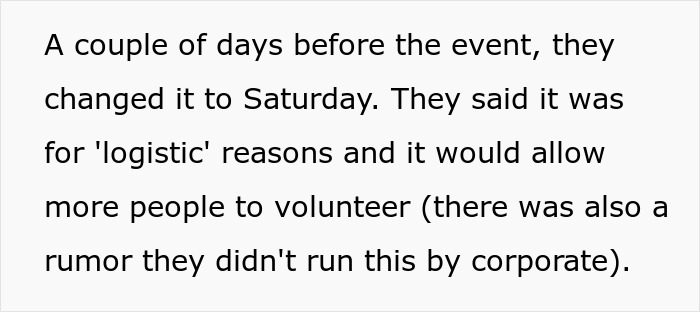


Image credits: Pixabay/Pexels (not the actual photo)

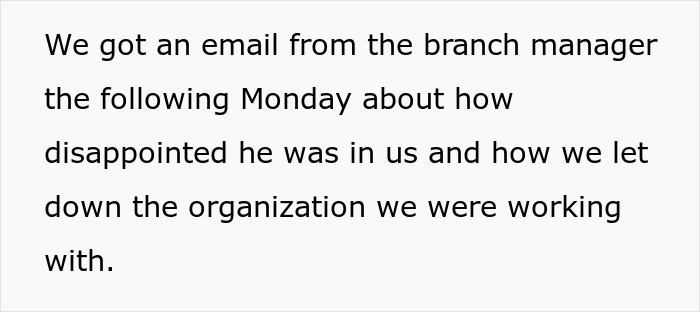


Image credits: Away_Location
Companies can significantly add to charitable causes, as well as encourage their employees to do the same
To many people, doing good feels good, so they might often be seen taking part in all sorts of initiatives, such as charity work or volunteering. According to Statista’s data from 2021, while the extent to which people took part in the latter, for example, differed with each age group, roughly one-in-five people volunteered with at least one organization that year.
But it’s not only individuals that tend to take part in such philanthropic activities; sometimes, companies do, too, strongly encouraging their employees to give back to the community. BrightFunds points out that close to 90% of executives believe that companies must lead with purpose and nearly as many think that over the course of the next five years, employees will increasingly value a meaningful mission and an opportunity to make an impact on that mission.
According to the Charities Aid Foundation (CAF), a group of charitable organizations in the UK and North America operating globally, there are numerous ways companies and businesses can inspire their employees to support a good cause. Some examples include making a commitment to “match the staff’s efforts—including payroll donations and volunteering time—from the company account” or setting up a ‘Staff Charity Fund’, where employees can pool their payroll, giving donations to make a bigger collective donation to a charity.
In a piece for Raconteur, the head of corporate clients at CAF, Philippa Cornish, suggested that businesses should commit to ambitious and bold strategic giving programmes, which would meet the stakeholder expectations, at the same time reflecting the business’s purpose.
“This ensures buy-in across an organisation, demonstrates genuine commitment to internal and external audiences, and ensures corporate charitable donations are not dismissed as disingenuous box-ticking,” she explained.
Young people are seemingly keen on supporting good causes
According to America’s Charities, young professionals nowadays seem to be enthusiastic about workplace donations, reportedly increasing their givings year-over-year. Leading by example, they show that actions speak louder than words and arguably significantly add to good causes all over the world; in the US, workplace giving is reportedly among the most cost-effective ways to support charities.
Said source also pointed out that more than 70% of employed individuals say that it’s imperative or very important that their workplace boasts a culture that is supportive of giving and volunteering. And while some people might consider company charitable giving or volunteering to be a PR stunt, as the OP suggested, they might still be willing to take part; unless the company changes their stance on the matter completely at the last minute. In the comments under the redditor’s post, fellow netizens didn’t hold back criticism for the company for doing exactly that.
Netizens believed that employees doing charity work should be appreciated properly




